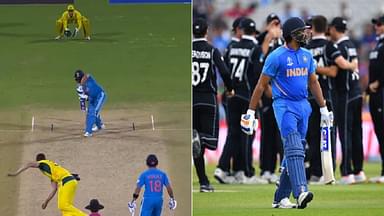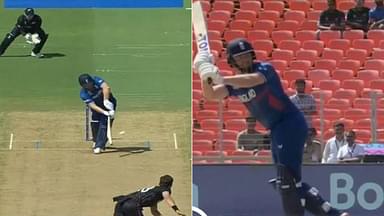What if boundaries of England and New Zealand were the same after the Super Over ended in a tie during the World Cup final at Lord’s
Advertisement
Ever since the England victory in the Super Over at the iconic Lord’s Cricket Ground, the entire Cricketing fraternity have had their heads scratching on the apparent ‘bizarre’ rules formulated by the ICC, which decides the winner on the basis of a comparatively higher boundary count.
With 15 required of the final over, England managed to garner 14 to take the match into the Super Over- the first time ever in the history of World Cup. But, the script did not reach its climax until the Super Over too ended with a Draw, with both the teams managing to score 15 runs each.
England’s 26 boundaries as opposed to New Zealand’s 17 till the end of the Super Over, made sure that England emerged winners of the 2019 ‘Battle of the Crown’ at their Home.
What if the boundaries of England and New Zealand were also same?
The burning question presently that has put the ever curious fans in a state of bewilderment is- what if the boundary count too would have been identical after the Super Over?
Well in that case, the total number of boundaries hit by the teams only during their respective innings (comprising 50 overs each), would have been counted, that is excluding the ones hit during the Super Over.
Even if then, the boundary count would have turned out to be the same, we would have witnesses joint winners of the 2019 World Cup for the first time ever in the history of the tournament.
What if a rain affected match ended in a tied Super Over?
Here is one more case of the ‘ifs and buts’, if we have already decided to come so far. There were even chances of rain playing spoilsport during the final at Lord’s.
Had rain intervened, and the had the match gone into the Super Over and consequently ended in a stalemate, then the team which scored maximum runs in the final delivery (which is the 6th delivery) of their respective Super Over innings, would have been declared the winners.
An England celebration at the Oval. Somewhere in that hoard of fans is England captain Eoin Morgan and the World Cup trophy pic.twitter.com/6bP5I7Qlpf
— David Charlesworth (@charlie_4444) July 15, 2019
Even if the score on that ball (the sixth) would have been identical, then the runs off the 5th delivery would have been taken into consideration. And this would have kept on happening until one team comes out at the top (even till the first delivery).
The aforementioned case would have been the ‘Mother of all co-incidents’. But, if England can win a run-chase by losing all their 10 wickets, anything is possible.






